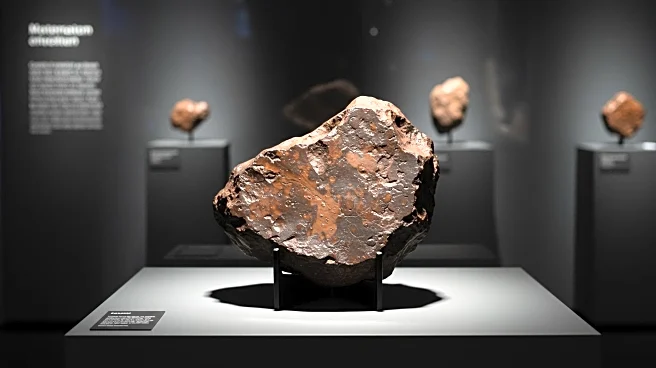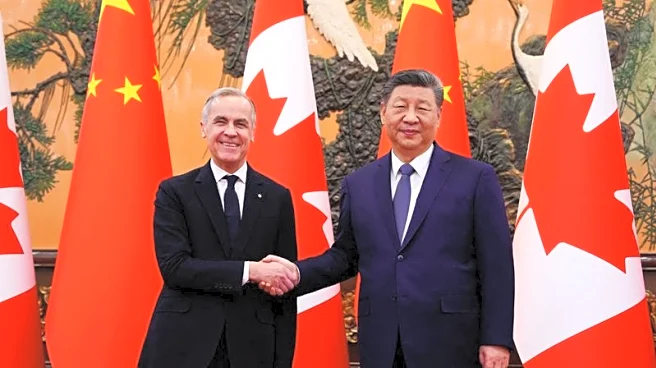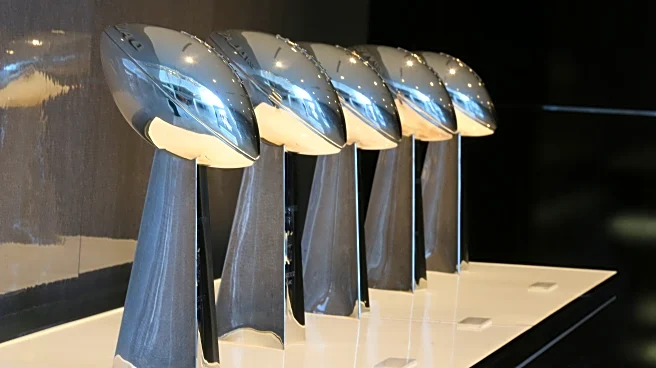What's Happening?
Niger has launched an investigation into the sale of a Martian meteorite, known as NWA 16788, which was auctioned for $5.3 million at Sotheby's in New York. The meteorite, discovered in Niger's Agadez region, is the largest piece of Mars found on Earth. The Nigerien government is questioning the legality of its export, likening the situation to illicit international trafficking. The investigation involves multiple ministries aiming to uncover details about the meteorite's discovery and sale. Sotheby's claims the meteorite was exported in compliance with international procedures, although Niger lacks specific legislation on meteorites.
Why It's Important?
The investigation highlights the complexities surrounding the ownership and trade of space rocks, which are considered valuable for scientific research and cultural significance. The sale of such meteorites can impact scientific accessibility and public education, as private collectors often hold significant masses. The case underscores the need for clear policies balancing private ownership with scientific and cultural interests. Niger's inquiry may influence future regulations on meteorite trade, affecting collectors, researchers, and governments involved in space rock transactions.
What's Next?
The investigation may lead to new regulations in Niger regarding meteorite ownership and export. Sotheby's is reviewing the situation, which could prompt changes in auction practices for space rocks. The outcome may affect international policies on meteorite trade, influencing how countries manage their natural resources. Stakeholders, including collectors and scientists, may advocate for clearer guidelines to ensure ethical and legal handling of meteorites.
Beyond the Headlines
The discourse around the meteorite sale raises questions about the ethical implications of private ownership of space rocks. It challenges the balance between scientific research and private collecting, highlighting the need for policies that protect cultural heritage while allowing scientific study. The case may inspire broader discussions on the ownership of extraterrestrial materials and their significance to humanity.











